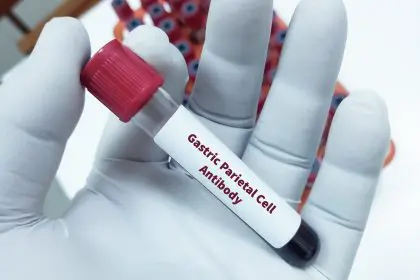A devastating respiratory infection once thought to be primarily a childhood concern is making an alarming comeback among adults, catching the medical community and patients completely off guard. Whooping cough, scientifically known as pertussis, is experiencing a dramatic resurgence that threatens to overwhelm healthcare systems and endanger millions of adults who mistakenly believe they’re protected from this dangerous bacterial infection.
The return of whooping cough represents more than just a statistical uptick in cases. This highly contagious respiratory disease is spreading through adult populations with unprecedented speed and severity, creating symptoms that can persist for months and lead to serious complications including pneumonia, fractured ribs from violent coughing fits, and even respiratory failure in severe cases.
What makes this resurgence particularly troubling is how the disease manifests differently in adults compared to children. Adult cases often go undiagnosed for weeks or months because the characteristic “whoop” sound during coughing episodes may be absent or subtle. This diagnostic delay allows infected adults to unknowingly spread the disease to vulnerable populations, including infants who face the highest risk of life-threatening complications.
The bacterial pathogen responsible for whooping cough has proven remarkably adaptable, evolving in ways that challenge our understanding of immunity and vaccination effectiveness. Modern strains demonstrate enhanced virulence and transmission capabilities, making them particularly dangerous for adults whose immunity may have waned since childhood vaccination or previous infections.
Understanding the scope of this crisis requires examining the multiple factors contributing to whooping cough’s resurgence and recognizing the unique vulnerabilities that make adults susceptible to this supposedly childhood disease.
The 7 shocking reasons behind whooping cough’s adult invasion
Waning immunity represents the primary driver of adult whooping cough cases, as protection from childhood vaccines gradually diminishes over time. The immunity provided by pertussis vaccines typically begins declining within five to ten years after the last dose, leaving adults increasingly vulnerable to infection. This phenomenon affects entire generations of adults who received their last pertussis vaccination in childhood or adolescence without subsequent booster shots.
Vaccine schedule gaps create dangerous windows of susceptibility in adult populations. Many adults remain unaware that pertussis boosters are recommended every ten years, similar to tetanus vaccinations. This lack of awareness, combined with inconsistent healthcare provider recommendations, has created a massive population of adults with insufficient protection against whooping cough.
Bacterial evolution has produced pertussis strains that demonstrate increased virulence and transmission efficiency compared to historical variants. These evolved bacteria can overcome immune responses more effectively, causing infection even in individuals with some residual immunity from previous vaccinations. The genetic changes in modern pertussis strains make them particularly adept at establishing infections in adult respiratory systems.
Diagnostic challenges contribute significantly to the adult whooping cough surge by allowing cases to go unrecognized and untreated. Adult pertussis often presents with atypical symptoms that mimic other respiratory conditions, leading to misdiagnosis as bronchitis, pneumonia, or even seasonal allergies. The absence of the characteristic whooping sound in many adult cases further complicates accurate diagnosis.
Social and occupational exposure patterns place adults at increased risk through workplace transmission, healthcare settings, and community gatherings. Adults working in schools, healthcare facilities, or other high-contact environments face elevated exposure risks, while their mobility and social interactions facilitate rapid disease spread throughout communities.
Pregnancy-related vulnerabilities create unique risks for expectant mothers and their unborn children. Hormonal and immunological changes during pregnancy can increase susceptibility to pertussis infection, while maternal infection poses serious risks to developing fetuses and newborn infants who cannot be vaccinated until several months of age.
Global travel and population mobility accelerate the spread of pertussis strains between regions and countries. International travel can expose adults to pertussis variants they lack immunity against, while returning travelers can introduce new strains to their home communities. This global circulation of diverse pertussis strains challenges local immunity patterns and vaccination effectiveness.
Recognizing the adult whooping cough masquerade
Adult whooping cough symptoms often develop gradually and can persist for weeks or months without proper treatment. The infection typically begins with cold-like symptoms including runny nose, low-grade fever, and mild cough that seems unremarkable. This initial phase, known as the catarrhal stage, represents the period of highest contagiousness while appearing deceptively mild.
The progression to paroxysmal coughing represents the most characteristic phase of adult whooping cough, though the classic “whoop” may be absent or subtle. Instead, adults often experience severe, prolonged coughing fits that can last several minutes and leave them exhausted and breathless. These coughing episodes frequently occur in clusters, particularly at night, disrupting sleep and daily activities.
Vomiting commonly accompanies severe coughing fits in adult whooping cough cases, as the violent nature of the cough triggers the gag reflex. This symptom can lead to dehydration and nutritional deficiencies if prolonged, particularly concerning for older adults or those with underlying health conditions.
Post-cough exhaustion characterizes adult whooping cough cases, with patients reporting extreme fatigue following coughing episodes. This exhaustion can be profound enough to interfere with work performance and daily activities, often persisting for weeks even after other symptoms begin to resolve.
Respiratory complications develop more frequently in adult whooping cough cases than many healthcare providers realize. Secondary bacterial infections, including pneumonia, can occur as damaged respiratory tissues become susceptible to other pathogens. Some adults develop chronic cough symptoms that persist for months after the initial infection resolves.
The hidden dangers lurking in adult cases
Cardiac complications represent an underrecognized risk of adult whooping cough, particularly in older adults or those with pre-existing heart conditions. The extreme physical stress of prolonged coughing fits can trigger cardiac arrhythmias, elevate blood pressure dangerously, and potentially precipitate heart attacks in vulnerable individuals.
Musculoskeletal injuries frequently result from violent coughing episodes, with rib fractures being surprisingly common in adult whooping cough cases. The forceful nature of pertussis cough can generate enough pressure to crack ribs, particularly in older adults with decreased bone density. Back strain, abdominal muscle tears, and hernias can also result from severe coughing fits.
Neurological complications, though rare, can occur in severe adult whooping cough cases. Reduced oxygen levels during prolonged coughing episodes may contribute to confusion, dizziness, or even seizures in extreme cases. Sleep deprivation from nighttime coughing fits can also impact cognitive function and emotional well-being.
Workplace and social transmission make adult whooping cough cases particularly dangerous for community health. Adults often continue working during the early stages of infection when symptoms seem mild but contagiousness is highest. This behavior pattern facilitates rapid workplace outbreaks and community spread.
Economic impacts of adult whooping cough extend beyond individual medical costs to include lost productivity, extended sick leave, and healthcare system strain. The prolonged nature of whooping cough symptoms can result in weeks of reduced work capacity, creating significant economic burdens for individuals and employers.
Protecting yourself and others from the whooping cough surge
Vaccination remains the most effective protection against adult whooping cough, with booster shots recommended every ten years for all adults. The Tdap vaccine provides protection against tetanus, diphtheria, and pertussis simultaneously, making it a convenient option for maintaining immunity against multiple diseases.
Pregnancy considerations require special attention to pertussis vaccination timing. Expectant mothers should receive Tdap vaccination during each pregnancy, preferably between 27 and 36 weeks of gestation, to provide passive immunity to newborn infants during their most vulnerable period.
Healthcare worker vaccination represents a critical component of whooping cough prevention, as healthcare settings can become epicenters of disease transmission. All healthcare personnel should maintain current pertussis vaccination status and follow appropriate infection control measures when treating suspected cases.
Early recognition and treatment can significantly reduce the severity and duration of adult whooping cough symptoms. Antibiotics prove most effective when started during the early catarrhal stage, though they can still provide benefits even after characteristic coughing begins. Prompt treatment also reduces the period of contagiousness, helping prevent transmission to others.
Household and close contact management involves identifying and treating exposed individuals before they develop symptoms. Close contacts of confirmed whooping cough cases should receive antibiotic prophylaxis regardless of their vaccination status, as vaccine protection may be incomplete.
Public health awareness campaigns must emphasize the reality of adult whooping cough risk and the importance of maintaining current vaccination status. Many adults remain unaware of their susceptibility to pertussis or the availability of booster vaccinations, highlighting the need for improved education and healthcare provider communication.
The resurgence of whooping cough among adults represents a wake-up call about the importance of maintaining immunity throughout life. This dangerous bacterial infection can no longer be dismissed as merely a childhood disease, requiring renewed vigilance and proactive prevention measures to protect adult health and prevent further community spread.
















